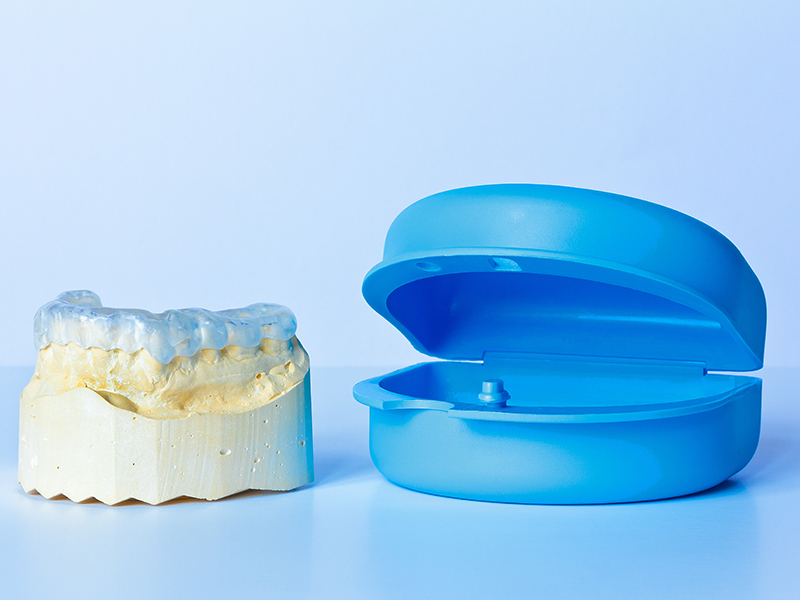Signs You May Need a Night Guard

Do you wake up in the morning feeling less rested and more sore in the jaw or achey in the head? Well, you’re not alone but you may be clenching and grinding your teeth while you sleep. Our Ann Arbor, MI, dentists can provide you with a personalized night guard to alleviate your condition.
Here’s how to tell when it’s time for your very own custom night guard.
Identifying Bruxism and TMJ Disorders
Experienced by many worldwide, bruxism is a common condition in which you grind and clench your teeth excessively. It can happen during the day or at night and oftentimes goes unnoticed by the affected individual.
Both adults and children can experience bruxism, though kids often age out of the condition. More often than not, bruxism results from high levels of stress, anxiety, or an abnormal bite. Fortunately, most cases are easily treated with wearable dental appliances, like night guards.
Related Post → Stress & Oral Health: How They’re Connected
Temporomandibular joint, or TMJ disorders can also play into an individual’s need for a night guard. Think of your temporomandibular joints (you have one on each side of your jaw) as a sliding hinge that connects the jawbone to your skull. When there is compromised or dysfunctional movement of the jaw joint, pain can occur in the facial muscles.
Our dentists will have to evaluate your teeth and jaw for obvious signs of bruxism and TMJ disorder. If tooth wear is found and facial pain is reported after waking, a night guard will be created.
Symptoms That Suggest an Issue
Any sign of bruxism or a TMJ disorder should be relayed to our dentists. If left untreated, the long-term existence of either condition can result in possible loss of teeth, enamel, and more.
Bruxism may be the culprit if you’re experiencing:
- Dull headaches after waking up
- Jaw, neck, or face soreness
- Teeth that are flattened, fractured, chipped, or loose
- Fatigue caused by lack of sleep
- Worn tooth enamel
- Increased tooth pain or sensitivity
- Tired or tight jaw muscles
If your grinding or clenching do result in damage to your teeth, our dentists may discuss the need for restorative procedures like same-day crowns or dental implants.
How Does a Night Guard Work?
Occlusal guards help protect your teeth and gums from the effects of constant grinding and clenching. They do this by acting as a barrier between your top and bottom teeth. Because the teeth can’t touch when the night guard is in place, grinding and clenching become difficult.
The night guard also gives the muscles in the jaw a cushioning effect if you do try to clench your teeth. Its presence lightens the tension put on the jaw and prevents pain in the area as well as tooth enamel loss.
Protect Your Smile While You Sleep
A custom night guard provided to you by our dentists in Ann Arbor, MI, will greatly reduce the negative effects of bruxism on your teeth. No need to worry about broken teeth or a sore jaw when you have the appliance in place. To get started with your very own night guard, call Liberty Dental at (734) 994-0909 to request an appointment.
This blog post has been updated.

